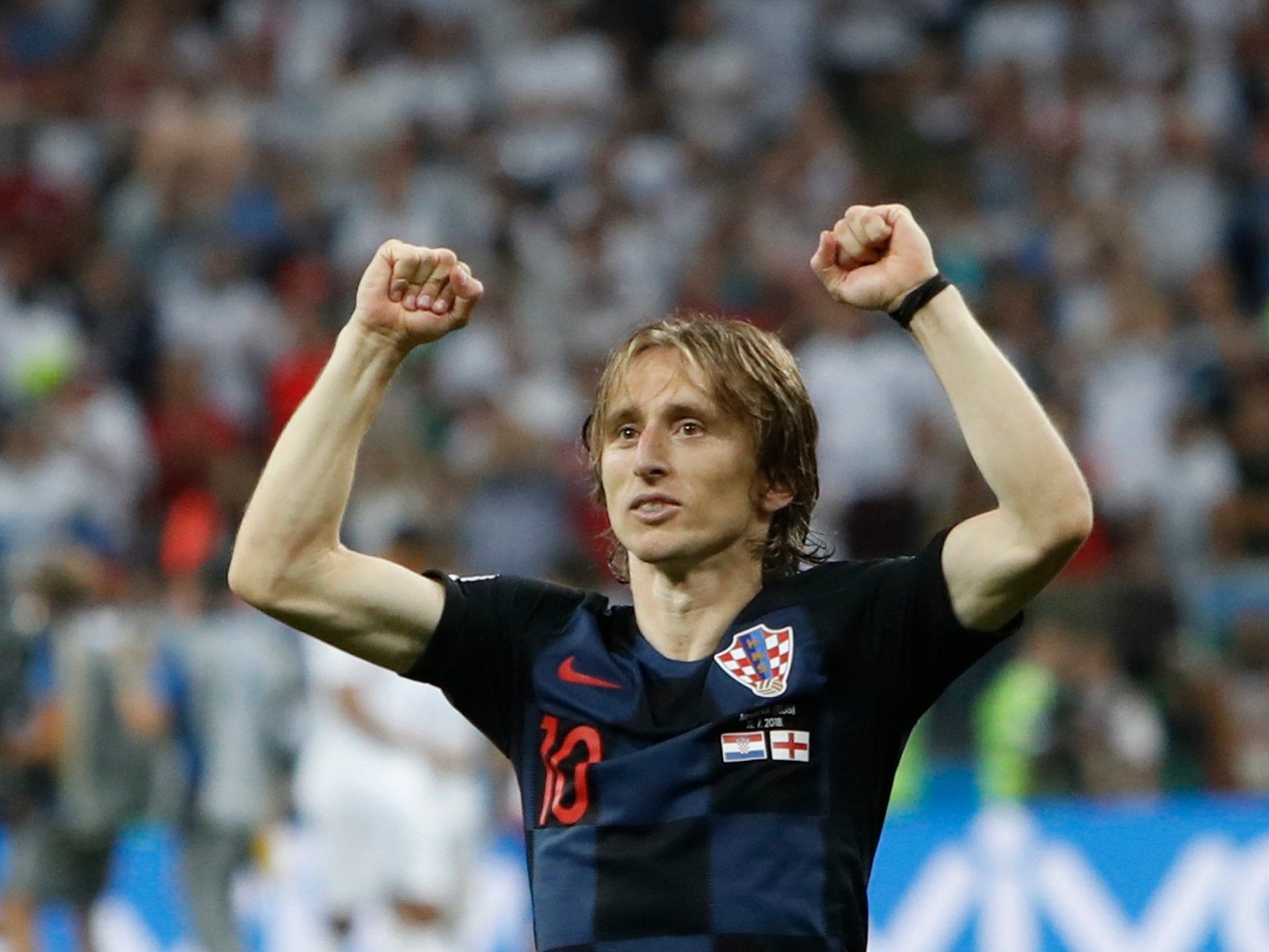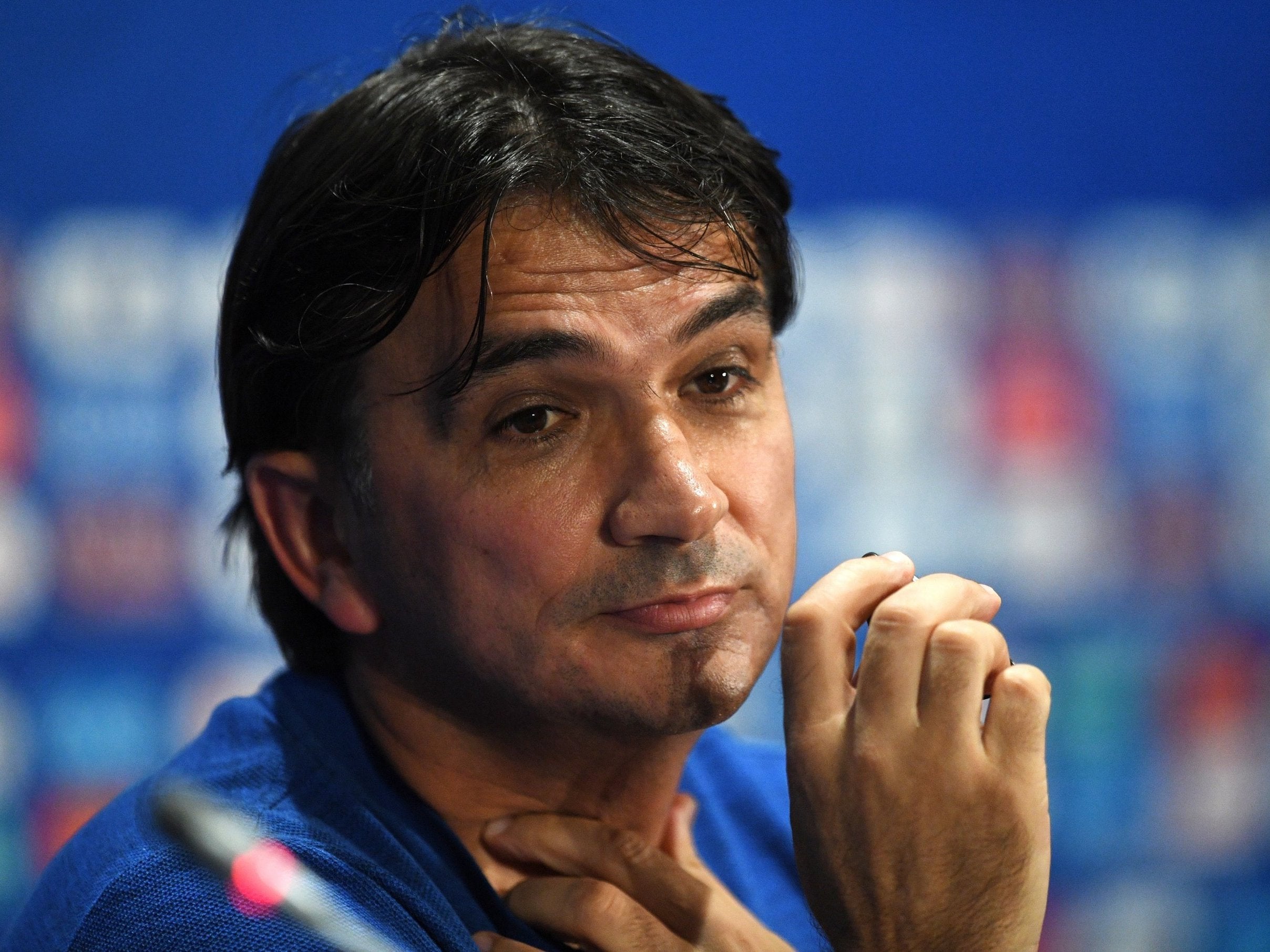World Cup 2018: How Croatia punches above its weight to take on the big boys at their own game
With a smaller population than nearly every past World Cup finalist, Croatia can go all the way playing a brand of football that rivals the very best

Your support helps us to tell the story
From reproductive rights to climate change to Big Tech, The Independent is on the ground when the story is developing. Whether it's investigating the financials of Elon Musk's pro-Trump PAC or producing our latest documentary, 'The A Word', which shines a light on the American women fighting for reproductive rights, we know how important it is to parse out the facts from the messaging.
At such a critical moment in US history, we need reporters on the ground. Your donation allows us to keep sending journalists to speak to both sides of the story.
The Independent is trusted by Americans across the entire political spectrum. And unlike many other quality news outlets, we choose not to lock Americans out of our reporting and analysis with paywalls. We believe quality journalism should be available to everyone, paid for by those who can afford it.
Your support makes all the difference.Once the celebrations had calmed, and people started to try put some proper context on the scale of Croatia’s achievement, Dejan Lovren put some humour into the discussion to go with all the other smiles. The centre-half stopped for quite a while in the Luzhniki Stadium mixed zone after their World Cup semi-final to discuss it all, and was inevitably asked just how his country keeps doing it.
“I would say we have good mothers and fathers,” Lovren laughed. “They are making good love.”
And yet, by football standards, they’re not making enough love – or shouldn’t be. As has now been mentioned so much in the aftermath of the win over England, Croatia has a population of just 4.3m. That makes them the smallest country to reach a World Cup final since Uruguay, and that was a deciding round-robin game rather than a final, when the football world was a much smaller and very different place. To put it into better context, it is not since 1962 that a country even just 8m people bigger than Croatia – Czechoslovakia – made this biggest of football fixtures. So they are not just the smallest to make a final since Uruguay, but by far the smallest. For that to follow a semi-final just 20 years ago is genuinely astonishing, when you put it in that correct context.
What they have done should not be possible in the modern game
The reasons for that, at least, should be obvious. It’s simple maths. The bigger the population, the greater chance any football culture has to produce quality professionals. Challenging this is becoming even more difficult in an era when all of the major western European nations are using their size and wealth to effectively industrialise talent production, and will become even more pronounced if France become the third successive such country – after Spain and Germany – to lift the World Cup. For comparison, the Ile-de-France Paris area that has been so heralded for its unending production line of young talent like Kylian Mbappe has a population of over 12m – almost three times that of Croatia.
The reasons Croatia have managed this and keep creating these sides, then, is far from obvious. There’s nothing simple about it, especially when you consider the chaos their federation has been engulfed in, with Lovren and Luka Modric both having been accused of perjury in the corruption trial of former Dinamo Zagreb president Zdravko Mamic. And that’s before you even get to the fact this is a country still recovering from a war that conditioned – and in many cases greatly disrupted – the early lives of all of the current generation.
That's before you get to the fact that modern football now seems to require the most modern coaching infrastructures as a basic starting point for such competitiveness.
There’s no Icelandic model here, nor has there even been a Greek template to their World Cup run.

That makes their feat even more impressive. Croatia have not played “small team football” or looked to mechanically game knock-out football through a strong defence and rehearsed set-pieces in the way Greece did in Euro 2004. They have not felt the need to compromise because of how the country is comprised. They’ve done the opposite. They’ve played the football of big countries, and big clubs, assertive football where everything is on their terms; where they use the ball.
Many might point to the sheer luck of having two of the best midfielders in the world in Modric and Ivan Rakitic, but there’s no luck about it if they’re part of a line of technically excellent players, and they follow stars like Zvonimar Boban and Robert Prosinecki.
It shouldn’t really follow logically. So many key figures in Croatian football say “there is no explanation” for that, that the infrastructure is “faulty and frankly amateurish even at the top level”, with little or no continuous strategy of blueprint. They can’t point to any single design that is the source of all this quality.
“In Croatia we still don’t have a national team stadium or even proper training camp for the national team,” former international player and manager Igor Stimac tells The Independent, before adding a significant but. “The Croatian coaching model is based on developing individual skills, perfect ball control and a sense for the game.”
This is one point that illustrates how Croatia’s size might actually work for them in an almost unique way.
The country’s long-standing prizing of number-10 playmakers and playing the right way may well have organically perpetuated a culture that just keeps creating coaches who buy into this approach, and thereby players trained by it. The size has also meant that the ideas of any single club can actually be enough to replicate the effect of a national academy or strategy, as has exactly been the case with Mamic’s former club Dinamo Zagreb.
Thirteen of the 22 men available to manager Zlatko Dalic for Sunday’s final came through the capital club, and the way they have been able to make millions from selling such players has itself created this cycle where they can keep bringing in the best young players and coaches.
Other clubs like Hajduk Split have started to respond to this, as have more forward-thinking figures in Croatian football. Former administrator Romeo Jozak was part of a group who put in place a curriculum so all young players from the age of 12 up are coached under a sophisticated “unified vision” for the game.
But that is for the future. It does not explain now.

Some of it may also go back to the past, and the influence of a communist system that so prized the value of sport, for health benefits as much as propaganda. They constantly overachieve in other areas, especially the Olympics medal table, as Lovren was also keen to point out.
“I think it is our mentality,” the centre-half said. “We went through a lot of s***, wars, all these things and even now the situation is not the best. But it is unbelievable how many talents we have in sports: basketball, handball, water polo, tennis.”
Stimac expresses a similar belief.
“Not having a proper infrastructure is an enormous problem, but using the only two things we have – pure talent and coaching philosophy – seems to be enough to keep our national team among the best teams in the world for nearly 30 years is amazing achievement.”
Such a situation, and an old-fashioned faith in instinct as well as intrinsic national traits should really be completely outdated and ineffective in the modern football world, a relic of 30 years ago. It is instead the source of something the game hasn’t seen in decades.
Join our commenting forum
Join thought-provoking conversations, follow other Independent readers and see their replies
Comments